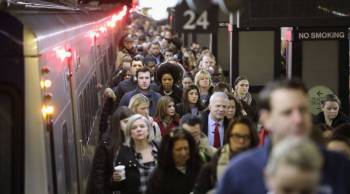Egypt’s, Tunisia’s economies face similar challenges
TEXT OF STORY
JEREMY HOBSON: Banks have re-opened in Egypt. But the stock market there remains closed this morning. Thirteen days of anti-government protests have sent the Egyptian pound to its lowest level in years. Well remember — all the turmoil we’re seeing in the Middle East started in Tunisia. And now the new transitional government in that country is working to deal with the serious economic problems that sparked the revolution.
Sabri Ben-Achour reports from the capital, Tunis.
SABRI BEN-ACHOUR: Go to a cafe and speak with just about any young person in Tunisia these days and you’re bound to hear similar stories. Here’s 20 year old Wafa Leman.
WAFA LEMAN: I have a degree in marketing and I’m working in a call center. Some of my colleagues have masters degrees, we even have a guy with a Ph.D. there.
And if they’re from the interior of the country, you’ll hear how things are even worse there. Kawther Jaballi is 29.
KAWTHER JABALLI: We have five people with masters degrees in my family and none have been able to get a job in five, six years.
It’s estimated that 30 percent of young graduates are unemployed. Tunisia has invested in education more than almost any other country in the region. But in recent years some economists say the education system has been paying more attention to churning out grads than to making sure they’re prepared for the real world. At the same time, the former government neglected economic development in huge swaths of the country. The result: a lot of educated people without jobs, especially in poorer areas.
ELYES JOUINI: That’s the major problem that we need to face. Everything leads to that and everything comes from that.
Elyes Jouini is in charge of social and economic reform for Tunisia’s transitional government. He says it wants to decentralize decision making and focus economic development on poorer areas.
JOUINI: Right now everything is decided in Tunis as far as investment goes, and that hasn’t necessarily corresponded to actual needs.
The new government has already given out cash to unemployed graduates to help make ends meet. It’s also looking to boost private sector job creation possibly through simplifying regulations and providing lines of credit.
In Tunis, I’m Sabri Ben-Achour, for Marketplace.
There’s a lot happening in the world. Through it all, Marketplace is here for you.
You rely on Marketplace to break down the world’s events and tell you how it affects you in a fact-based, approachable way. We rely on your financial support to keep making that possible.
Your donation today powers the independent journalism that you rely on. For just $5/month, you can help sustain Marketplace so we can keep reporting on the things that matter to you.


















